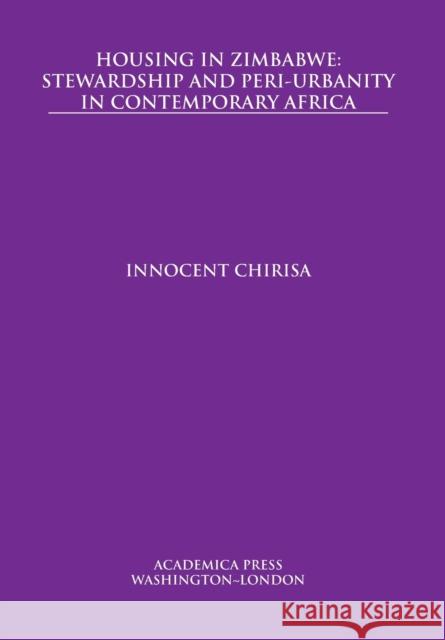Housing in Zimbabwe: Stewardship and Peri-Urbanity in Contemporary Africa » książka
Housing in Zimbabwe: Stewardship and Peri-Urbanity in Contemporary Africa
ISBN-13: 9781680531978 / Angielski / Twarda / 2020 / 418 str.
This book examines the nexus between housing and stewardship in peri-urban areas outside of Harare, Zimbabwe. Housing in Zimbabwe explores the factors that shape peri-urban environments into better managed and sustainable areas where housing development is the major activity. Using the Stewardship Theory, or Partnership, Model as the main framework and point of departure, the analysis follows five basic approaches: Biblical-religious, business, environmental, vernacular, and place-based community/grassroots. Chirisa ponders conflicts among the relevant actors, given their contrasting priorities and interests and maintains that such conflicts are perpetuated by such factors as local history, resident income levels, a lack of defined and clear-cut state policies, and commitment by institutions towards the creation of sustainable settlements. The study recommends further application and use of technologies for remote sensing (Geographic Information Systems included) to help monitor and guide development in peri-urban areas with the goal of achieving evidence-based policies. The hope is to create effective tools for stewardship by co-creating an institution focused on urban regional development using scenario and collaborative planning methodologies to avoid chaotic peri-urbanisation.











